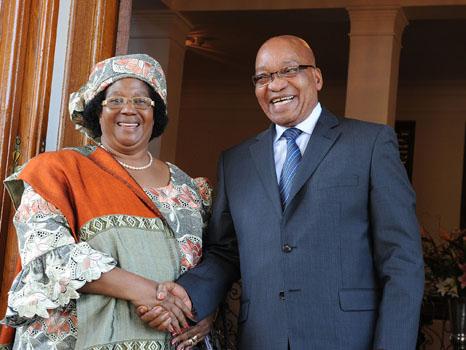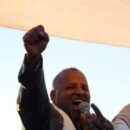One hundred days later and the Chibok girls are still not free – By Debbie Ariyo

 Today, 22 July, marks 100 days since the abduction of almost 300 girls by terrorists from their school dormitory in Chibok, North East Nigeria. Since then, some of the girls managed to escape from their abductors. However, most of them remain in captivity with reports of mass rape, sexual abuse, sex slavery and even death.
Today, 22 July, marks 100 days since the abduction of almost 300 girls by terrorists from their school dormitory in Chibok, North East Nigeria. Since then, some of the girls managed to escape from their abductors. However, most of them remain in captivity with reports of mass rape, sexual abuse, sex slavery and even death.
There has also been news of other abductions, including 90 girls who were taken in a series of attacks in June. The current situation on ground does not offer much hope that a successful effort by the government to rescue all the girls abducted by Boko Haram and to prevent further abductions will occur in the forthcoming 100 days.
That the Nigerian government has handled the Chibok issue abysmally is not in doubt. Its initial reaction to reports of the abductions was complete denial. This was followed by claims that the girls had been found and returned to their families. This was a complete untruth as nothing of the sort had happened.
The President’s wife provided her own drama when she held a “˜public meeting’ to demonstrate that no girls were abducted and that news of the “˜false’ abduction was to discredit her husband. The President has also shown a total lack of empathy by refusing to meet with parents of the abducted girls to commiserate with them.
A ridiculous attempt to capitalise on Girls Advocate Malala Yousafzai’s recent visit to get the parents to see him failed spectacularly when they refused to honour the invitation. The government has also maintained that it would not negotiate with terrorists; neither would it undertake a military attempt to rescue the girls as it did not want to risk their lives. It is not really clear then what, if anything, the government is doing to secure the girls’ release.
In addition, there has been widespread criticism of the government’s poor handling of the Boko Haram insurgency. Hundreds of thousands of refugees in neighbouring countries fleeing from terrorists remain uncared for. Schools remain closed and it is not clear how the Safer Schools Initiative established by Gordon Brown, former British Prime Minister and UN Special Envoy, would operate in the midst of such widespread chaos and insecurity.
There has been no strategy to safeguard communities as the terrorists continue to operate virtually unhindered, attacking villages on a daily basis, killing people and abducting more women and girls. As an ominous sign of what is to come, last week, Damboa, a town in Borno State was attacked with the terrorists hoisting their flag in the military battalion headquarters to claim it as their territory.
The military itself has been comatose and inefficient, with reports of a large number of casualties among troops. In May, some soldiers mutinied to complain about the lack of provision of adequate and suitable arms and ammunition to fight with. There have been reports of rogue military men colluding with terrorists to organise raids on communities, military barracks and other places. The terrorists are reported to be better resourced and to have access to better ammunition than the Nigerian military.
In June, Nigerians woke up to the news that their government had spent over $1m to recruit public relations company Levick to help launder its image in the West. Its first task backfired spectacularly – an article it placed in the Washington Post attracted a damning editorial in the New York Times as a response. Nigerians also took to twitter using the hashtag #SomeoneTellLevick to demonstrate the futility of their government’s action.
Yet there are a number of decisive steps the Nigerian government can take to redeem its image and ensure the girls are freed as soon as possible. It must urgently decide if it wishes to negotiate for their release in exchange for prisoners or failing that, attempt a rescue mission, knowing full well that there will be consequences but taking every possible step to ensure there are no casualties among the girls.
It is foolhardy to leave the girls in the hands of terrorists indefinitely hoping and praying that a miracle would happen! The recruitment of a PR company is unnecessary and a waste of public funds. The government does not need to pay to whitewash its image – it only needs to start acting in the best interests of its citizens.
Stronger efforts should be made to protect people from Boko Haram and to take care of victims. The launch of a Victim Support Fund is laudable, but government must ensure the funds actually reach the victims. The government must also start to co-operate with its neighbours to provide care and support for its citizens who have escaped from terrorists and who are now living as refugees.
Most importantly, the Nigerian government must stop dilly-dallying about the rogue military officers in its wing. These are traitors whose activities are inimical to the security of the country and must be treated as such.
100 days later, over 200 Nigerian girls remain as captives in the hands of terrorists. The response of the Nigeria government so far does not inspire any hope that they will be free anytime soon. If the government does not change direction and start to act decisively, the next 100 days might see the girls and many others still being held as slaves by Boko Haram. This would indeed be a terrible indictment of the government of Nigeria.
Debbie Ariyo is Founder and Executive Director of AFRUCA – Africans Unite Against Child Abuse, a UK charity promoting the rights and welfare of children. www.afruca.org






Madame, I wonder if the robust media coverage of this tragedy did anything to help the girls’ safety. I am in no way an expert, however, in the past I’ve seen the media consciously avoid publicising developments in hostage situations to help the relevant authorities better negotiate the victims’ return.
Why was this case so different?